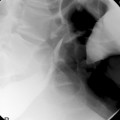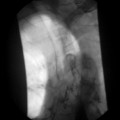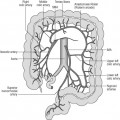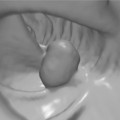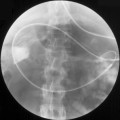CHAPTER 2 Medico-legal aspects of gastrointestinal imaging practice
Introduction
Negligence on the part of the healthcare team, or their employer, can result in a legal claim. Such claims are on the increase (Berlin, 1999; Alderson and Hogg, 2003), possibly because of a greater awareness about compensation being sought from a suboptimal outcome – where the fault lies with another, or possibly because there is a greater awareness of the claims process itself – particularly notable on local radio stations through advertising. Some argue that public expectations of healthcare have been raised to an unrealistic level (Butt, 1998) requiring an increasing emphasis to be placed upon educating the public about realistic expectations. This might be worth considering during your contact with patients during the explanatory and consenting phases.
Within this chapter, we shall explore aspects of clinical negligence associated with imaging and therapy of the GI tract. The general principles outlined are likely to apply to most countries; however, it is important that you familiarize yourself with the legal processes in the country in which you practice, because conceptual and procedural differences will exist. We will not consider the detail of the legal claims process; however, if this interests you we would recommend the article by Alderson and Hogg (2003) which explains the process of a legal claim in English law.
Where might negligence claims arise in GI imaging and therapy?
Table 2.1 offers a number of circumstances where claims might arise.
Table 2.1 Circumstances in which claims could arise
| Category of claims | Examples |
|---|---|
| Inadequate patient care | Failure to identify that the examination requested is inappropriate for the related clinical history, (for example) if a barium enema has been requested for a patient with bloody diarrhea |
| Poor medicines management for the prescription, supply and administration (including x-ray contrast media) | Administering the wrong medicine/drug such as the inappropriate use of Buscopan or Glucagen or not ascertaining whether a patient had renal impairment before administering magnesium citrate (e.g. Citramag) as a bowel preparation Failing to check the medicine/drug for technical matters (e.g. contamination, expiry date, concentration) |
| Poor radiation protection measures | |
| A lack of competence to perform the task | |
| Failure to articulate significant known risks about the procedure to your patient | |
| Failure to interpret and articulate the result of a diagnostic procedure | |
| Inadequate communication of bad news to patients |
On examining the list in Table 2.1, it becomes clear that the points are representative of unreasonable/poor clinical practice. Alternatively, engaging in reasonable clinical practice (the converse of the above) would improve the patient experience and outcome and also minimize the chance of a legal claim. Reasonable clinical practice, therefore, does not need to have a purely litigious basis; its basis would build on reasonable standards of care and management that are expected of highly skilled and educated practitioners.


